Magnesium sulfate, popularly referred to as Epsom salt, is widely discussed in the gardening community. From promoting seed germination to improving plant nutrient uptake, questions often arise about whether or not it can harm plants. The role and impact of Epsom salt in the garden are essential for gardeners who want healthy thriving plants. This article will explore some myths and facts regarding the use of Epsom salts in gardening; they provide an understanding into its advantages and possible dangers. By examining scientific research and practical experiences, it will be possible to determine if Epsom salt is an asset or liability to your garden.
What is Epsom Salt and How Does It Work in the Garden?
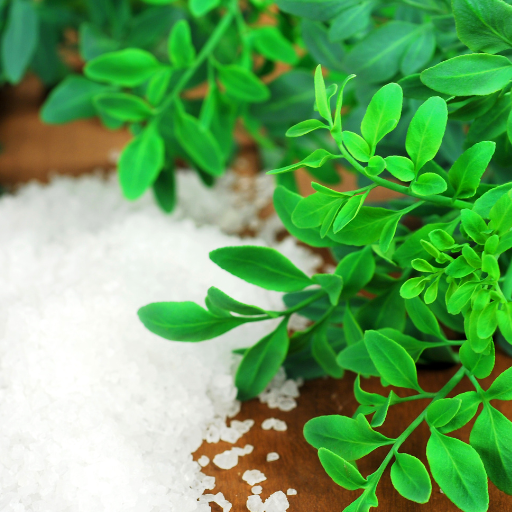
Epsom salt is a naturally occurring mineral compound of magnesium, sulfur and oxygen. It is often used in gardening to supplement magnesium needed by plants. Photosynthesis, a critical process in plants for the manufacture of food using sunlight, heavily relies on magnesium as one of the components of chlorophyll. Besides that, magnesium helps other important nutrients such as phosphorus and nitrogen to be absorbed easily into plants’ roots. Where soil application or foliar showering with Epsom salts is done, it may help alleviate magnesium shortages, leading to better crop growth and general health. Conversely, the effectiveness can fluctuate depending on different soils and plants.
Understanding Chemistry: Magnesium and Sulfur
Both Magnesium and sulfur are crucial plant nutrients that have independent roles in their well-being. Plants need chlorophyll molecule which contains magnesium for photosynthesis so they can convert sunlight into energy. Furthermore it aids in uptake of nitrogen that provides energy transfer and formation proteins through synthesis reactions with phosphorus being one crucial component in this process [6]. On the other hand, some amino acids contain sulfur as well as vitamins which contribute towards protein synthesis during enzymatic activities together with complete metabolism involving plant systems. In sum total these promote robust plant development making Epsom salt potentially useful if properly used in gardens however whether there is a necessity or impact from magnesium sulfate will depend much upon the existing nutrient profile within soil and specific requirements for growing plants.
How Epsom Salt Improves Soil Nutrients
Epsom salt primarily increases both amounts of sulfur and magnesium directly contained within soil, enhancing its nutrient content. The production chlorophyll needs amelioration through adding has an effect of raising Mg levels when MgSO4 is added to soil (72). As a result, more food would be produced efficiently due to conversion during photosynthesis thus enhancing plant vitality too (Heckman 2013). Enzymes and vitamins are essential to plants such that if Epsom salt is included in the soil, it provides sulfur to these.
Technical parameters to consider include:
- Application Rate: Usually, mix 1-2 tablespoons of Epsom salt per gallon of water for foliar sprays or 1-2 tablespoons per square foot for soil application.
- Soil pH: The right pH of soil for applying Epsom salts ranges from 6.0 to 7.5 so that magnesium and sulfur remain available.
- Frequency: Biweekly applications during growing season can be made.
- Soil Testing: Soil tests should always be done, preferably by checking existing levels of magnesium and sulfur, to prevent excessive amounts and nutrient imbalances from developing (Anderson et al., 2014).
Following these guidelines will ensure that Epsom salt improves soil quality without causing damage to vegetation in terms of their nutrient levels.
What Are the Risks of Using Epsom Salt?
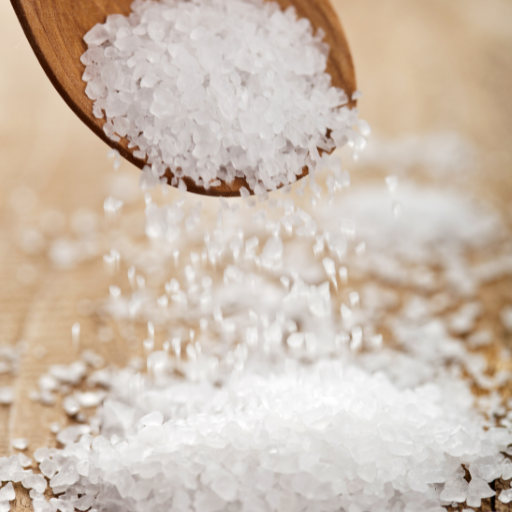
There are many risks associated with Epsom salt even though it can provide vital nutrients. Nutrient imbalances like over-use of Epsom salts can lead to particularly deficiency in magnesium and sulfur, impairing absorption of other necessary dietary elements such as calcium and potassium. In addition, excessive use can pollute the soil and water since Epsom salt easily dissolves. This leads to runoff which has an adverse influence on the surrounding areas. Finally, improper usage may also harm plant health by causing leaf scorch or reduced growth. Thus, following recommended guidelines and regularly testing the soil is important.
Can Epsom Salt Cause More Harm Than Good?
Sometimes it does more harm rather than good. If used excessively, it can cause too much magnesium in soils that may alter the balance of other essential nutrients like calcium and potassium. This would result in poor yields due to plant stunting resulting from nutrient imbalance. Furthermore, over application can increase soil salinity thus negatively impacting soil structure as well as health while its high solubility causes risks of runoff leading to water pollution and destruction of aquatic ecosystems. Therefore, although they have a beneficial effect when correctly applied, careful application should be done together with doing regular soil tests because negative impacts must be averted.
Are There Any Side Effects on Garden Soil?
Yes there are effects on garden soil as a result of using Epsom salt? Overuse results into excess magnesium that displaces significant nutrients like calcium and potassium hence creating nutritional imbalance within plants thereby retarding both growth and productivity levels Moreover, Epsom salts have high solubility hence making them prone to leaching therefore increasing chances of either water or soil pollution Elevated salinity arising from excessive use of those salts deteriorates structure rendering it less fertile while increasing its compaction Therefore through moderation in their use coupled with appropriate examination of soils any possible damage caused by them on gardens’ soils will be minimized
Is Epsom Salt Good for Plants?
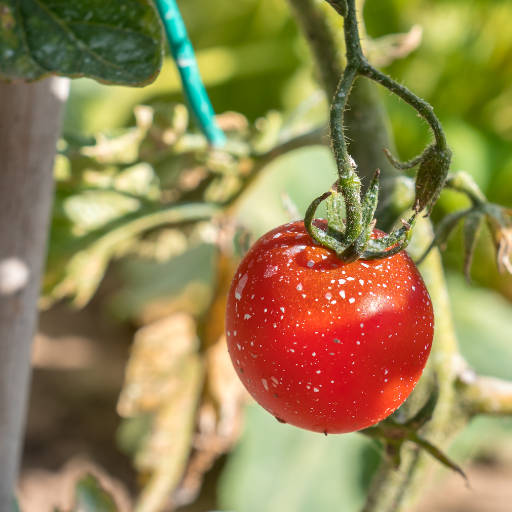
When used properly, Epsom salt is a good plant nutrient. This contains vital nutrients necessary for chlorophyll production such as magnesium and sulfur that enhance the absorption of minerals and overall plant health. Some plants including tomatoes, roses, and peppers require Epsom salt to initiate flower and fruit formation. However, it should be noted that not all plants need more magnesium and an overdose could be detrimental to soil nutrition thus discouraging healthy development of plants. For this reason, use Epsom salt according to the requirements of particular plants in moderate amounts as instructed by soil tests.
Specific Advantages of Using Epsom Salt
Properly using Epsom salt can give certain advantages to plants. The most important aspect is that it provides magnesium which is essential for photosynthesis. Magnesium helps increase chlorophyll content, enhancing green coloration in leaves thereby improving photosynthesis efficiency. Secondarily, through enzyme catalyzed reactions it may help facilitate uptake of essential nutrients such as nitrogen and phosphorus from roots into the body tissues . Lastly ,Epson salt application can lead to more flowering in crops like tomatoes or capsicums hence increased yields making it particularly suitable for fruit gardens.
Thus, based on research findings and recommendations obtained from reputable sources the following technical parameters shall be strictly observed:
- Application Rate: For most plants, dissolve 1 tablespoonful of Epsom salts in a gallon of water once per month.
- Soil Testing: Before applying Epsom salt, do random soil testing to see if there is any deficiency in magnesium levels. Typically, 1.5-3% CEC (cation exchange capacity) values are considered ideal soil magnesium levels.
- Frequency: Application has to be restricted so as not to cause imbalances in nutrient supply rates, especially when a salinity problem could arise. High concentrations resulting from excessive use may damage both soil structure stability and its water retention capacity.
These guidelines ensure that Epsom salt is beneficial and safe for garden soil and plant health.
Epsom Salt Can Damage Garden Plants
Although Epsom salt has many advantages, its misuse or too much use can result in negative effects on garden plants. Overuse may lead to a nutrient imbalance in the soil that might cause calcium and other important elements’ deficiency. Excessive application rates of Epsom salts also increase salinity levels of the soil environment hence destroying water holding capacity and structure of it. Besides, an excess amount of magnesium could interfere with essential minerals absorption leading to adverse impacts on a plant’s growth and wellbeing. Therefore , it is vital that recommended procedures be followed when using Epsom salt as well as doing soil tests to avoid any negative consequences.
Epsom Salt and Soil Nutrient Deficiency
Epson helps address some deficiencies especially Mg deficiency which is necessary for photosynthesis and general wellbeing of plants in soils. When plants develop signs such as yellowing leaves or retarded growth, judicious application of balanced amounts of Epson salts could restore magnesium levels back into the plants thus encouraging lusher foliage as well as more active roots system . Nevertheless, this lack should only be attributed to insufficient amounts of magnesium but not else because similar symptoms may arise from other imbalances between nutrients. Thus, it is always essential to carry out proper testing so as to diagnose deficiencies accurately while avoiding other nutrient imbalances through specific application of Epson salt.
Can Epsom Salt Prevent Blossom End Rot?

Tomatoes and peppers are among other kinds of fruits with blossom end rot which results from a lack of calcium in them. Magnesium deficiencies can be addressed by Epsom salt (magnesium sulfate) but not calcium. Therefore, using Epsom salt will not prevent or cure blossom end rot. Moreover, it may even cause more harm due to excessive magnesium that interferes with uptake of calcium in the plants. Thus, to avoid the occurrence of blossom end rot, ensure that there is enough calcium in the soil and there is regular watering for calcium uptake by the plants.
Understanding Blossom End Rot and Its Causes
The main cause of blossom end rot is a shortage of calcium in young fruits. In this condition, darkened areas appear on the affected fruit at its bottom part, leading to reduced yield and quality. Factors such as root damage, inconsistent watering, excessive nitrogenous fertilizer application, and pH imbalance may also lead to low calcium levels.
- Water Management: The plant transportation system for calcium depends on water; hence, regular irrigation or the absence of it leads to a disorder called blossom-end rot.
- Soil Calcium Levels: Amending soils according to soil test recommendations by adding lime or gypsum, which are rich in calcium, ensures there is sufficient of it in the soil.
- Fertilization Practices: High-nitrogen fertilizers should be avoided because they cause plants to grow vegetatively faster than their fruits, causing competition over the use of soluble Ca ions required for proper cell functioning. Balanced fertilizers are useful for supporting normal growth.
- Soil pH: Keep the soil pH within acceptable limits for vegetable crops which should fall at 6.5-7.2 on average acid base scale since either extremity would reduce availability of Ca nutrients through roots.
Adhering to these guidelines will help minimize your risk of getting blossom-end rot while promoting healthy fruit development. Routine soil testing will guide correct gardening practices that encourage optimum nutrient equilibrium and growth in your garden crops.
Using Epsom Salt to Address Magnesium Deficiency
Magnesium deficiency can be solved by applying Epsom salts which is nothing more than magnesium sulfate. Inadequate magnesium in plants results in yellow foliage with the veins remaining green and stunted growth as symptoms. Dissolve about 1 tablespoonful of Epsom salt into a gallon of water and apply directly into the soil or spray on the leaves through foliar feeding. This method will ensure that plants absorb magnesium at a higher rate. By using it regularly, this deficiency will be corrected, thereby ensuring healthy greener leaves and overall improved plant health status. However, excess dosage should be avoided by monitoring reactions from plants themselves.
Can Epsom Salt Kill Weeds?
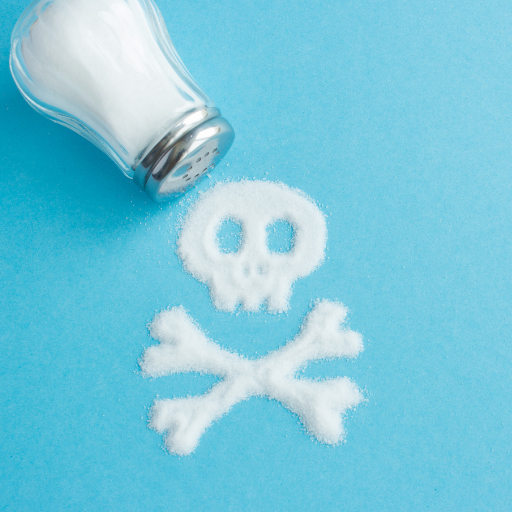
Not everyone knows that Epsom salt does not work well when used alone as a weed killer. Some sources recommend combining it with vinegar and dish soap to create a homemade herbicide, but there is little scientific proof supporting this approach. Epsom salt serves as a soil additive for magnesium and sulfate rather than as an herbicide. Alternatively, one may want to use weed killers specially created for that purpose, which can be found in various stores.
Use of Epsom Salt for Weed Control
At the moment, there is no substantial scientific evidence supporting the claim that Epsom salt can be used as an herbicide for controlling weeds on the farm. However, experts advise against getting involved in anecdotes or DIY recipes that involve blending vinegar or dish soap with Epsom salts. Rather than being a remedy against weeds, Epsom salts only enhance magnesium levels in the soil when used by farmers on their wheat farms. Effective methods of weed control require commercial targeted herbicides made specifically for this purpose to guarantee consistent and efficient results.
Garden Weeds Problems And The Cures Using Epsom Salts
In such cases when common garden weed problems occur, it becomes essential to deal with specific types of weeds and apply proven strategies. It’s worth noting that although Epsom salts helps increase the amount of magnesium present in soils, its effectiveness as an herbicide remains unproven. Accordingly many choose manual removals; mulching systems; pre-emergent herbicides aimed at defeating them; so they can manage weeds better in flower beds among other places in gardens. While removing perennial weeds like dandelions one should dig out their deep roots otherwise they will sprout again while annual ones could be blocked from sunlight by applying mulch around them thus preventing their germination process through photosynthesis where sunlight is required to manufacture food for plants hence if there is any shortage leading to low rate of growth then death will follow due to starvation which is a result of lack of enough energy from this farming source. In conclusion, using traditional weed control approaches and supplements like Epsom salt for soil health can create a balanced and manageable garden ecosystem.
How to Use Epsom Salt in the Garden Effectively?
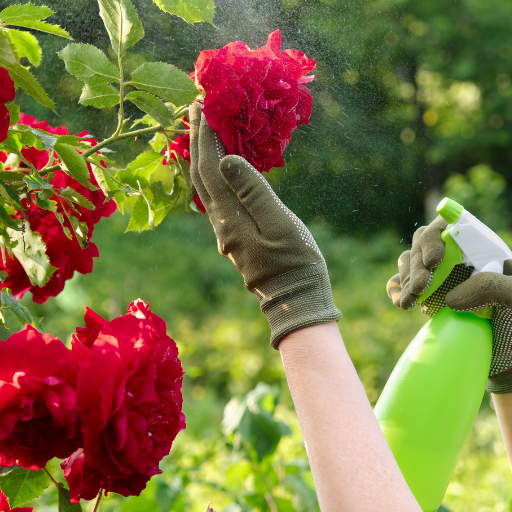
How to effectively use Epsom salt in the garden starts by finding out what your plants need specifically. For overall soil improvement, mix one tablespoon of Epsom salt with a gallon of water and make use of it as a foliar spray every two to four weeks. Sprinkle Epsom salt directly at the base of magnesium-deficient plants such as those using about one to two tablespoons for each plant, then water well. Some examples of vegetables that typically benefit from application of Epsom salts are tomatoes and peppers together with roses as well. Each time make sure you water properly after application for the salt to dissolve and be absorbed through watering.
Mixing epsom Salt Solution : Proper Ratios
For most gardening needs, dissolve one or two tablespoons of Epsom salts in a gallon of water. This solution can be applied by spraying it on the leaves every 2-3 weeks so as to boost their magnesium content . To apply to the soil, mix a tablespoonful at the base monthly. For more intense cases such as when treating magnesium deficient soils, three pounds of Epsom salts is mixed with 1250 square feet soil area. Always ensure that all the Epsom salts have dissolved before applying them so as not to creating accumulations that may cause root damage.
Best Methods for Applying Epsom Salt
When using this product on your plants, make sure you utilize proper techniques so that they can get maximum benefits from it. In general care for your plants mixing it with some water which has been completely dissolved will help you out better than many methods put together. Use this mixture either as foliar spray or in form of soil drenches. Magnesium application via foliar sprays enables quick absorption through stomata into foliage tissues (see Figure II). While using it on this type ensure thoroughly watering has taken place once applied hence root zone receiving enough amount is reached by Epsom salt. Another way is to sprinkle it dry around the plant base. A teaspoon each for one plant followed by thorough watering so that this can dissolve the salt and be taken up through water with roots has proven sufficient. This is ideal especially for bigger plants such as roses and tomatoes. Always observe your plants and depending on their reactions adjust the application rates.
When to Avoid Using Epsom Salt in the Garden
However, there are times when its use should be discouraged even though Epsom salt had numerous advantages to plants. First, if your soil already contains enough magnesium, do not apply Epsom salt because excessive magnesium will interfere with other essential nutrient uptake like calcium and potassium uptake . Second, avoid using it where magnesium sensitive plants exist, e.g., Sage (Salvia officinalis). Thirdly, avoid using Epsom salts as a primary soil amendment without a balanced fertilizer; they should only be used in conjunction with other nutrients depending on what your soil needs. Overuse can lead to potential build-up, causing soil imbalance and root damage. Before applying Epsom salts therefore ensure you have conducted a soil test just to make sure that it is necessary since wrong amounts of such applications might negatively affect plant health.
Common Mistakes When Using Epsom Salt in the Garden
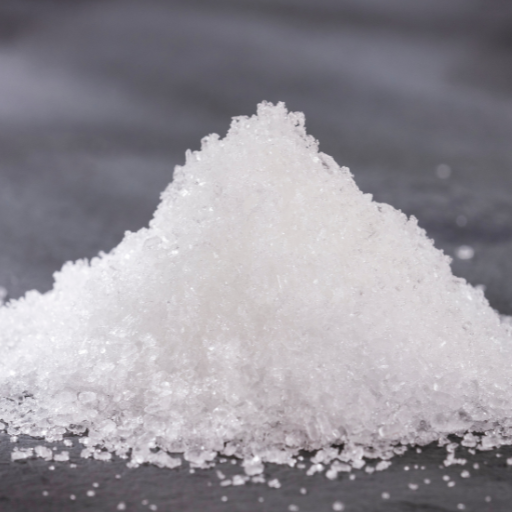
The repeated mistake that gardeners commit is overuse of Epsom salt leading to nutritional imbalances and possible cases of toxicity. In addition, too much use of it can raise magnesium levels within the soil thereby hindering plant uptake essential elements like potassium and calcium. Moreover, another most common error is thinking that Epsom salt can act as replacement for a balanced fertilizer while in real sense it should be used as an additive rather than a main nutrient source. Lastly, whenever one fails to conduct soil tests before applying this salt, it may lead to unnecessary use because some soils have enough magnesium and adding more amounts of Epsom salts will not only be superfluous but also might prove harmful. Always customize your usage on the basis of plant specificities and soil requirements.
Abuse and Possible Damage Caused by Excessive Use
There are various adverse effects associated with excessive application of Epsom salt in plants and soils. Overabundance of magnesium interferes with the availability of essential nutrients like potassium and calcium leading to symptoms such as stunted growths, yellowing leaves, and poor fruits or flowers production resulting from their deficiencies. Moreover, elevated levels of magnesium can upset the pH balance of the soil making conditions unsuitable for plants’ survival in addition to possibly detrimental impacts on beneficial soil microorganisms. Just be cautious when using this type of salt and follow directions which are based on thorough testing so as not to face these negative outcomes.
Wrong Application Techniques
Improper application procedures for Epsom salts can nullify its benefits or damage gardens. The commonest mistake involves broadcasting without properly incorporating into the topsoil thus reducing its effectiveness besides causing runoff potentials. Another problem occurs when people dilute with water first hence apply them excessively especially frequently thereby depositing excess magnesium into the ground that way Lastly others mistakenly think other forms add more vital nutrients yet they do not require additional Mg unlike those already flourishing in balanced soils. Thus, it should be evenly mixed with the soil or alternatively use it directly on plants that definitely require magnesium as opposed to employing them on any crop and all over the garden, and whenever possible.
Understanding Soil Test Results Before Use
It is important that one fully understands soil test results before applying Epsom salt. Soil tests analyze essential nutrient contents, pH values as well as general soil conditions to determine if magnesium supplementation is necessary. Ordinarily, some of the results from these tests include levels of Mg in soils, pH as well as other nutrients such as calcium, potassium and phosphorus among others. The best range for soil pH for most crops is between 6.0 and 7.0 while magnesium concentrations should range between 25 to 50 pounds per acre.
This information will help you know if your land has no enough magnesium ions. It is unlikely that more Epsom salts are required when magnesium levels are within range because they might be harmful afterwards. Conversely, if it falls below this limit then apply this particular type of salt carefully until there is sufficient amount of Mg in the ground. To make informed decisions about Epsom salt application, always relate results obtained from soil tests with plant symptomatology like leaf yellowing and slow growth rates since you can never go wrong by doing so. Consequently, such gardens receive a good balance of nutrients without risk of over-use effects.
Reference sources
- Epic Gardening
- Source: Epsom Salt For Plants: Good Or Bad?
- Epic Gardening discusses the effectiveness of Epsom salt for plants, emphasizing that while sulfur alone is effective against certain pests, higher magnesium levels, such as those found in Epsom salt, provide little benefit.
- Gardening Know How
- Source: Information About Using Epsom Salts For Plants
- Gardening Know How highlights the benefits of Epsom salts for plants, particularly the magnesium it contributes and how it can boost other essential nutrients needed by plants.
- MasterClass
- Source: Epsom Salt in Garden: 4 Ways Plants Benefit From …
- MasterClass explains the benefits of using Epsom salt in gardening, detailing how it can serve as a plant fertilizer for both garden plants and houseplants and help reverse magnesium deficiencies in the soil, showcasing its positive effects on plant growth.
Frequently Asked Questions (FAQs)
Q: What is Epsom Salt and How Does it Benefit Plants?
A: Epsom salt, chemically known as magnesium sulfate, is used by home gardeners to enhance plant growth. It provides magnesium and sulfur, which are essential nutrients for plants. These elements help in the production of chlorophyll, improve nutrient uptake, and strengthen cell walls.
Q: Can You Use Epsom Salts on All Types of Plants?
A: While Epsom salt can be beneficial to many plants, it is particularly helpful for tomatoes, peppers, and roses. However, it’s important to know that not all plants need extra magnesium. Ensure that the soil is deficient in magnesium before applying Epsom salts to avoid harming plant health.
Q: How Should Epsom Salt Be Applied to Plants?
A: Epsom salt can be added to soil or dissolved in water for application. For direct soil addition, sprinkle one tablespoon of Epsom salts per square foot of soil and mix it well. When dissolved in water, use one tablespoon of Epsom salt per gallon of water and apply at the base of the plant or as a foliar spray.
Q: How Can Epsom Salt Help with Tomato and Pepper Plants?
A: Epsom salt works well for tomato and pepper plants by enhancing blooms and fruit production. Since these plants need magnesium for chlorophyll synthesis and nutrient assimilation, adding Epsom salts to the soil or spraying the plants can resolve deficiencies and promote healthier growth.
Q: What Are the Signs That Your Plants Might Need Epsom Salts?
A: Plants showing signs of magnesium deficiency, such as yellowing leaves or stunted growth, could benefit from Epsom salts. If soil tests reveal low magnesium levels, adding Epsom salts can address this issue and encourage better plant health.
Q: Can Epsom Salt Solve Calcium Deficiency in Plants?
A: No, Epsom salt cannot resolve calcium deficiency as it contains magnesium and sulfur, but not calcium. Blossom end rot in tomatoes and peppers, for example, is caused by a calcium deficiency, not a lack of magnesium. For calcium issues, a different supplement like garden lime might be needed.
Q: What Is the Recommended Dosage of Epsom Salt for Different Plants?
A: The general recommendation is to use one tablespoon of Epsom salt per gallon of water for most plants. For potted plants, use a smaller quantity, such as a half-teaspoon of Epsom salt per gallon of water. Always dilute the salts properly to avoid over-application.
Q: How Often Should Epsom Salt Be Applied?
A: For ongoing plant health, Epsom salt should be applied once a month. Depending on the specific needs of the plants and soil conditions, some gardeners might use Epsom salts every six weeks. Regular observation and soil testing will guide the optimal frequency for application.
Q: Are There Any Risks Associated with Using Epsom Salt in the Garden?
A: Overuse of Epsom salt can lead to nutrient imbalances and potentially harm plant health. High levels of magnesium can interfere with the uptake of other essential nutrients like nitrogen, potassium, and phosphorus. Always follow recommended dosages and perform soil tests when in doubt.
Q: Can Epsom Salt Be Used in Combination with Other Fertilizers?
A: Yes, Epsom salt can be used alongside other fertilizers. It complements organic and synthetic fertilizers by providing essential magnesium that the plants need. Ensure not to over-fertilize, as excess nutrients can damage plants.






